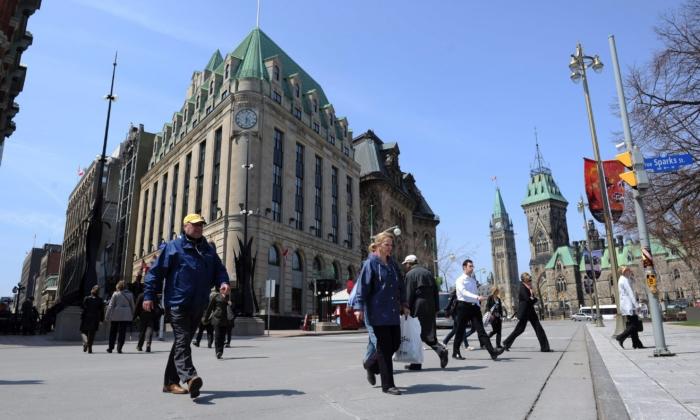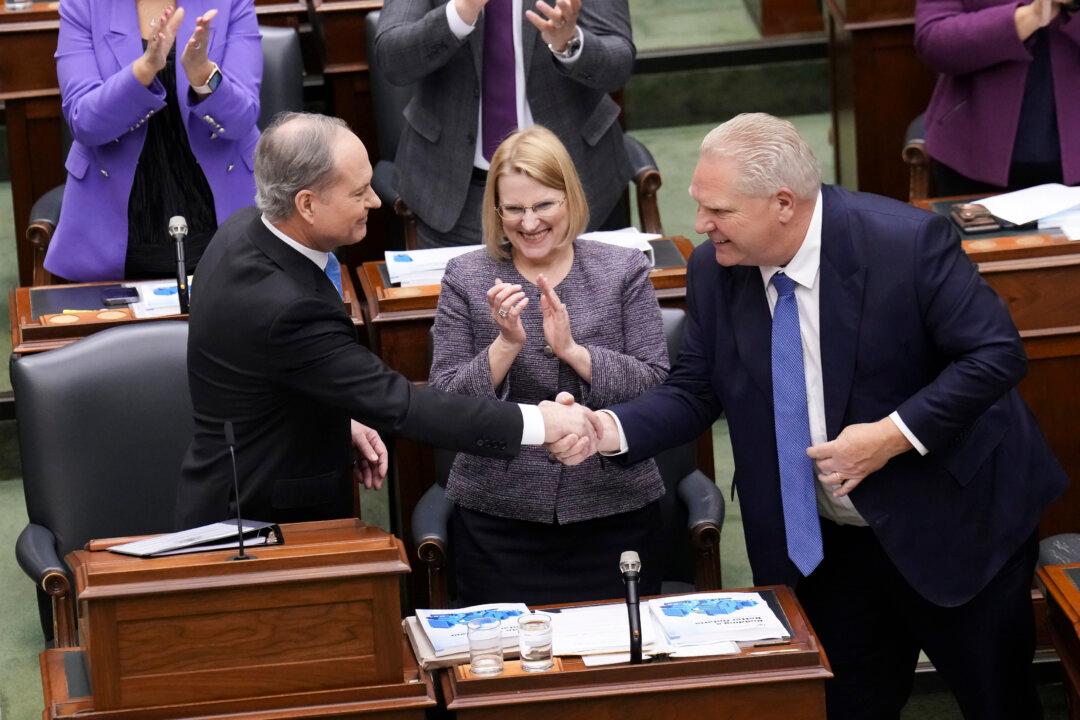Commentary
Many Canadians, especially among those who were born here or have been here for decades, are asking themselves how such a wonderful, albeit imperfect country could have gone off the rails in what seems like such a short period of time. Few young Canadians in Toronto and Vancouver, as well as many places in Canada, can afford a single-family home. More people are going hungry and/or living on the streets than ever thought was imaginable.
A mood of despair and anger is growing in a nation once famous for its passivity and optimism. How did we get here so fast?
It is easy to blame the current federal government that has ruled for eight years. Goodness knows, the Trudeau government has plenty to answer for. However, the problems that are apparent now were decades in the making. The current government merely accelerated negative trends that began five decades ago and increased in intensity in the years since.
I must also point out that Canada is a true federal system. The provinces have more of an effect on the economy than states do in the United States, and they also share a large measure of guilt. Our biggest three provinces, Ontario, Quebec, and B.C., constitute three-quarters of the population of Canada and, most of the time, they have failed in the economic stewardship of this country.
Canada is a democracy and our elections are free and fair. Therefore, our federal, provincial, and municipal leaders did not seize power in violent coups. We, the people, elected them and must bear responsibility for the mess we find ourselves in. We childishly believed that government was a wish machine that was there to make us happy and soothe our neurosis. Consequently, we elected officials that had us hand over more of our money to them and thanked them by re-electing them when they gave some of it back or spent it in ways that made us feel virtuous.
Government spending has increased over the decades because of this attitude. Excess government spending is maladaptive as consumers are better equipped to make optimal decisions. Yes, we need a good educational system, and having our children educated by a state monopoly may have worked half a century ago, but is not effective today. The school system’s costs have risen while educational quality collapses. Teachers, once underpaid and dedicated, are now highly paid relative to the parents of their students, have lucrative pensions at public expense, and brainwash our children into their progressive agenda. Sadly, these students come out of the system dramatically less productive than their parents and grandparents, with bleaker economic futures.
The rise in debt-to-GDP that has occurred is well documented. Furthermore, the precipitous rise in Canadian money supply is also well known and fuels inflationary pressures. The money supply, as measured by M2, has increased by 80 percent under Justin Trudeau. Rates were set artificially low for years by the Bank of Canada, and to be fair, other central banks created malinvestment that seems to have had the counterintuitive effect of reducing economic growth.
I have opined on these points for years, as have others. I wish to bring up a point that is not well discussed, but must be. Government spending per person in Canada has increased dramatically and we have little to show for it. There seems to be more people struggling than ever, schools are less effective, and the medical system is deteriorating, if we adjust for scientific advancements.
If we adjust for inflation, the ratio of federal program spending rose from $5,000 per person to $11,500 from the late 1960s to 2022, an increase of 130 percent, far more than real income. The provincial picture is even worse. Canada’s largest province saw average provincial spending per person more than triple, rising from $3,500 to $11,000 in the same period. This period corresponds roughly to when Ontario went from a manufacturing giant to an even worse economy than the rest of the Rust Belt. In total, the average Ontarian has seen total government spending, ex-municipal spending, rise from $8,500 to $22,500.
These figures adjust for inflation, but not GDP growth. GDP per capita growth has lagged real increases in government spending. This should be expected given the malinvestment issue. Canadians would have been far better off if the extra $14,000 had remained in their pockets. And we did have better schools, less crowded hospitals, and fewer poor and homeless people in the late 1960s.
I purposely eschew looking at the GDP per capita metrics. Government spending, like fixed costs of a corporation, should have an economies-of-scale advantage as population and income increase. Roads can carry more people, and the price of that road should not be affected on a dollar-for-dollar basis much by increasing per capita GDP. All things being equal, real government spending per person should show a slight decline each year due to technological advances and a higher population across which to disburse fixed costs. The increase in government spending has decreased the potential growth rate of the economy. There is, unquestionably, a negative correlation between government spending per person and economic growth rates. Correlation doesn’t prove causality, but correlation can disprove nonsense. Increased spending is not making us richer.
If we had a better and happier nation in the late 1960s, spending $8,500 per person rather than our current level of $22,500, I suggest we can decrease spending. Perhaps decreasing the current level to somewhere between those numbers of $15,000 over 10 years, or 4 percent, would be reasonable and give Canadians a chance to become more self-dependent in time. These are the levels of the 1980s, which was a far better decade than the 2020s.
A combination of tax breaks, lower government spending, lower deficits, and a declining debt-to-GDP ratio would result in a better Canada.







